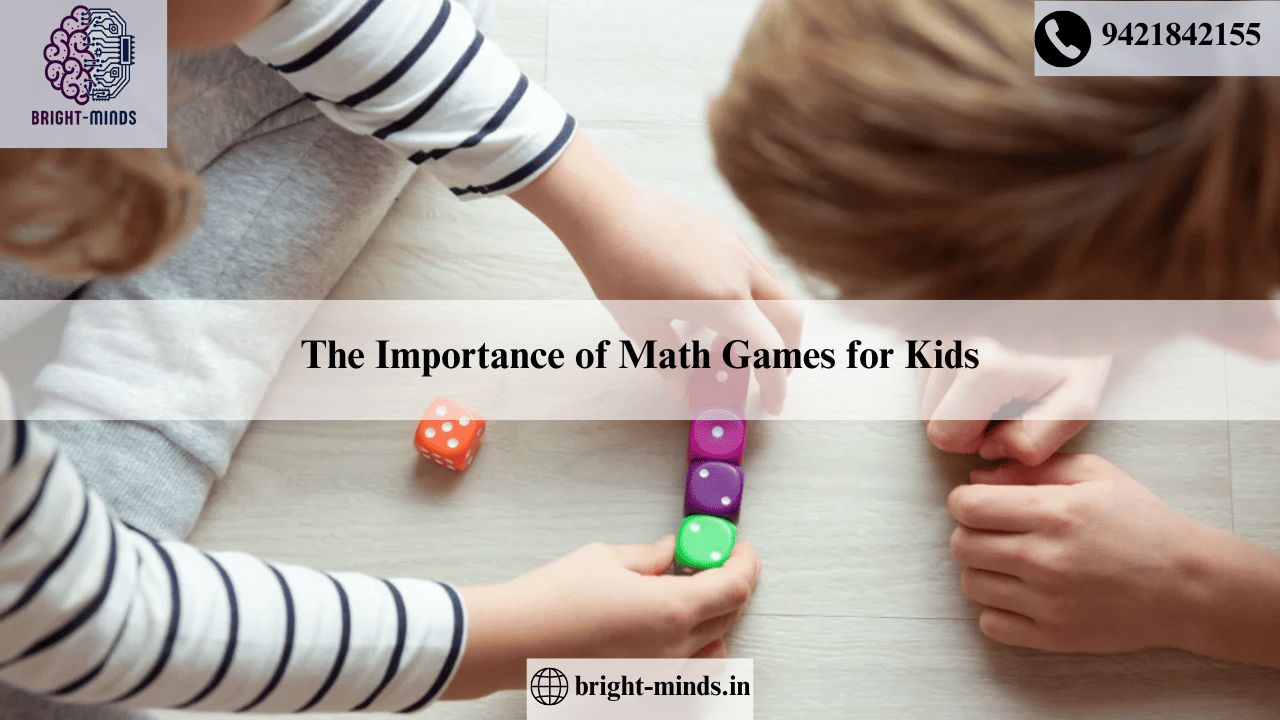Mathematics can often feel like a daunting subject to many children. The abstract concepts, equations, and formulas can seem difficult to grasp, especially for younger learners who are still developing foundational skills. However, one of the best ways to make math fun and engaging for children is through math games. These games provide a hands-on, interactive way for kids to explore mathematical concepts while fostering a love of learning. Whether online, on paper, or through physical activities, math games can play a crucial role in helping children build essential math skills in an enjoyable and effective way.
In this blog, we will explore the importance of math games for kids, focusing on how they support learning, enhance cognitive development, and help children gain confidence in their mathematical abilities.
1. Making Math Fun and Engaging
One of the most significant advantages of math games is their ability to make math enjoyable for children. Traditional math exercises can sometimes feel like a chore to young learners, with repetitive problems and rigid worksheets. Math games, on the other hand, provide a fun and interactive experience that allows children to approach math in a more relaxed and enjoyable way.
How it Helps:
- Increased Motivation: When children are engaged in games, they are more likely to stay motivated and interested in learning. Games often have levels or challenges, which provide immediate feedback and rewards that make the learning process feel rewarding.
- Reduced Anxiety: Math anxiety is a common issue among children, and it can prevent them from performing their best. Math games create a low-pressure environment where children can experiment and make mistakes without fear of failure.
By transforming math into a game, children learn that it doesn’t have to be a stressful subject. They start to view math as a fun challenge instead of a difficult task, which can lead to a positive attitude toward learning in general.
2. Building Fundamental Math Skills
Math games are a great tool for reinforcing foundational math concepts. These skills form the building blocks for more advanced topics later on, so it’s important for children to develop a strong understanding early on. Math games help children practice essential skills like addition, subtraction, multiplication, division, and number recognition in an interactive way.
How it Helps:
- Repetition with Variety: Math games allow children to practice key skills multiple times but in different ways. For example, a game may present addition problems in the context of a puzzle, a race, or a treasure hunt. This variety prevents boredom and helps solidify concepts.
- Skill Reinforcement: Games can introduce different types of problems, helping children understand how math applies to various scenarios. This ensures that they not only memorize facts but also understand how to use them in different situations.
For example, if a child is learning multiplication, a game that challenges them to multiply numbers quickly in a race format can help them reinforce the concept while building speed and accuracy.

3. Encouraging Problem-Solving and Critical Thinking
Math games encourage kids to use problem-solving and critical thinking skills. Many games present math challenges that require children to think creatively and apply their knowledge to find solutions. Whether they are solving a puzzle, navigating through obstacles, or figuring out a strategy to win, kids learn how to approach problems logically.
How it Helps:
- Improves Critical Thinking: In addition to reinforcing math facts, math games require children to analyze problems and develop strategies. These critical thinking skills extend beyond math and benefit children in other areas of their academic and personal lives.
- Promotes Logical Thinking: Many math games involve pattern recognition, logic puzzles, or reasoning through a series of steps. This helps children strengthen their logical thinking and decision-making abilities, which are important skills not only in math but in daily life.
For instance, a math game that asks a child to figure out which numbers to combine in order to complete a pattern helps them develop a systematic way of thinking, which can be transferred to other academic subjects.
4. Improving Memory and Focus
Math games can help children improve both short-term and long-term memory. Many math games involve recalling mathematical facts, solving problems quickly, or memorizing steps in order to win the game. Repetition of math facts through gameplay helps strengthen memory and improves retention.
How it Helps:
- Enhances Working Memory: Math games often require children to remember information they have already learned while solving new problems. This helps improve their working memory, which is necessary for holding and manipulating information in their minds.
- Increases Focus: In many math games, children must stay focused and remain engaged to progress. This encourages them to practice concentration and persistence, which can help with other subjects and tasks.
For example, a memory-based math game that requires children to match cards with equivalent addition or subtraction problems can enhance their recall abilities and help them remember math facts more easily.
5. Fostering Healthy Competition and Social Skills
Math games also provide an excellent opportunity for children to work in groups or compete against one another. Whether playing with peers, siblings, or parents, math games allow kids to practice communication, cooperation, and teamwork. Healthy competition and collaboration can teach children valuable social skills such as sharing, negotiating, and respecting others.
How it Helps:
- Promotes Teamwork: Many multiplayer math games require children to work together to solve problems or complete challenges. This promotes collaboration and teaches children how to contribute to group efforts.
- Develops Social Skills: Playing math games with others can help children improve their communication skills, such as explaining their thinking or listening to others’ ideas. They also learn how to handle competition gracefully and understand that winning isn’t everything.
For example, a board game that involves math challenges can encourage children to take turns, strategize together, and cheer each other on, which builds social bonds and teamwork.
6. Adapting to Individual Learning Styles
Math games can be tailored to suit the unique learning styles of each child. Some children are visual learners, while others may be auditory or kinesthetic learners. Educational games can incorporate visual aids, sounds, and hands-on activities to cater to these different preferences, making math accessible to a wider range of learners.
How it Helps:
- Supports Various Learning Preferences: Some math games use colorful visuals, animations, and sounds to help children who learn best through sight and sound. Others may involve physical activities, like using manipulatives or moving pieces on a board, which is ideal for kinesthetic learners.
- Personalized Learning: Many online math games have adaptive features that adjust to the child’s skill level. This ensures that the child is constantly challenged but not overwhelmed, allowing them to progress at their own pace.
For instance, a child who learns best by touching and moving objects can benefit from a math game that uses physical manipulatives like counting blocks, while a child who prefers visual aids may enjoy a game that uses bright colors and animations to explain concepts.
Also Read:
https://bright-minds.in/unlocking-word-meaning-for-class-ukg-english-to-hindi/

